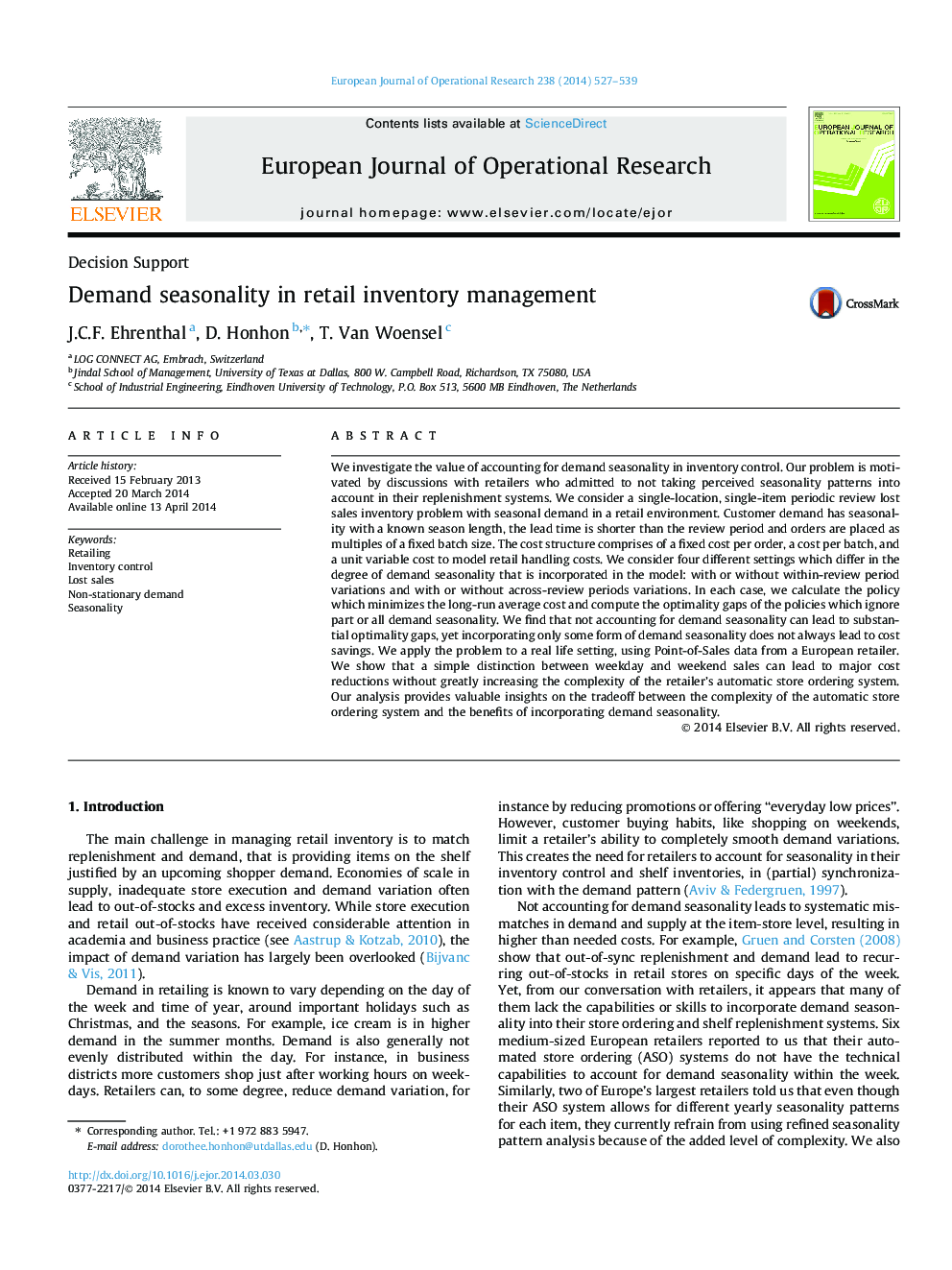| کد مقاله | کد نشریه | سال انتشار | مقاله انگلیسی | نسخه تمام متن |
|---|---|---|---|---|
| 478115 | 1446022 | 2014 | 13 صفحه PDF | دانلود رایگان |
• We investigate the value of accounting for demand seasonality in inventory control.
• We calculate the policy which minimizes the long-run average cost.
• We compute the optimality gaps of policies which ignore part or all demand seasonality.
• Extensions to problems with co-location and other, more general problem classes are discussed.
• We apply the problem to a real life setting, using Point-of-Sales data from a European retailer.
• We show that not incorporating seasonality can lead to a large profit gap.
We investigate the value of accounting for demand seasonality in inventory control. Our problem is motivated by discussions with retailers who admitted to not taking perceived seasonality patterns into account in their replenishment systems. We consider a single-location, single-item periodic review lost sales inventory problem with seasonal demand in a retail environment. Customer demand has seasonality with a known season length, the lead time is shorter than the review period and orders are placed as multiples of a fixed batch size. The cost structure comprises of a fixed cost per order, a cost per batch, and a unit variable cost to model retail handling costs. We consider four different settings which differ in the degree of demand seasonality that is incorporated in the model: with or without within-review period variations and with or without across-review periods variations. In each case, we calculate the policy which minimizes the long-run average cost and compute the optimality gaps of the policies which ignore part or all demand seasonality. We find that not accounting for demand seasonality can lead to substantial optimality gaps, yet incorporating only some form of demand seasonality does not always lead to cost savings. We apply the problem to a real life setting, using Point-of-Sales data from a European retailer. We show that a simple distinction between weekday and weekend sales can lead to major cost reductions without greatly increasing the complexity of the retailer’s automatic store ordering system. Our analysis provides valuable insights on the tradeoff between the complexity of the automatic store ordering system and the benefits of incorporating demand seasonality.
Journal: European Journal of Operational Research - Volume 238, Issue 2, 16 October 2014, Pages 527–539
